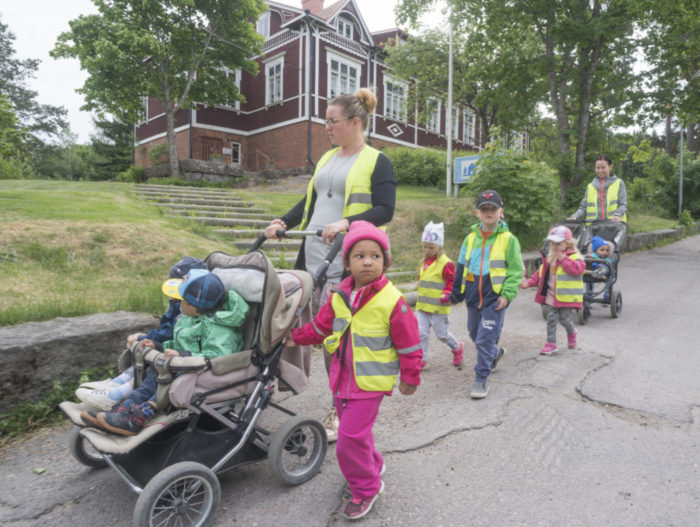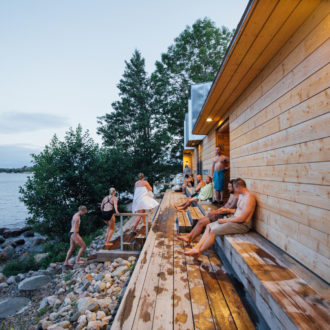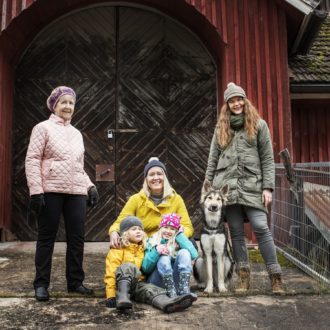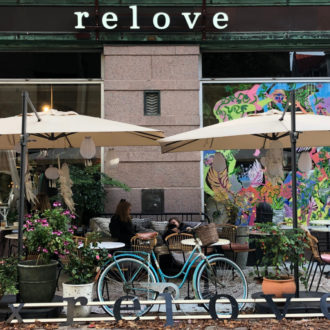The International Day of Happiness happens every year on March 20, and the UN Sustainable Development Solutions Network publishes its World Happiness Report to mark the occasion.
The report evaluates happiness based on answers to one main question from the Gallup World Poll: On a scale of zero to ten, how do you rate your own life (with ten being the best possible life)? Three years of data go into the calculations – the 2021 report uses answers gathered from 2018 to 2020. It also separately shows the data from 2020 alone. Finland tops both listings.
The publication also includes other considerations in its research behind the rankings. Unsurprisingly, the coronavirus is at the forefront of the 2021 edition, which appears almost exactly a year after pandemic-related restrictions and regulations started in Finland.
It concentrates on “the effects of Covid-19 on happiness and how countries have differed in their success in reducing the deaths and maintaining connected and healthy societies,” say the authors. Covid-19 has affected happiness, mental health, social connections and workplaces, and the report contains chapters on all of them.
The Nordics have something in common: Trust

It is safe to say that people in Finland are hoping that they will be able to enjoy time outside with friends in warm weather, like the Helsinkians in this picture from a couple years ago.Photo: Julia Kivelä/Visit Finland
What do Finland and the Nordic nations have that allows them to reappear at the top of the table year after year – even despite some significant differences between the countries in corona strategy? The report attempts to explain the factors behind happiness by studying data about life expectancy, confidence in government, average income, social support, generosity and freedom to make life decisions.
Other reports concentrate on more specific societal factors and can also shed light on the areas where Finland is successful: the Legatum Prosperity Index has listed Finland as having the best governance in the world; Transparency International measures lack of corruption and says Finland is the third-most transparent country in the world; Freedom House puts Finland at number one in political and civil freedom; and the Bertelsmann Foundation lists Finland as the third-most socially just country.
Although the World Happiness Report has put Finland in the spotlight several years in a row, there is still work to be done. More than ever before, we need to find ways to look after ourselves and each other. Finnish young people talk about their visions of the future of happiness. Video: ThisisFINLAND
The World Happiness Report authors focus in on a key indicator: trust. Finland and the other Nordic countries are known for displaying a high level of trust. People generally trust each other and the government to a large degree.
The report notes, “Trust was shown to be the key factor linking happiness and Covid-19.” What? What do they mean by a link between happiness and the coronavirus?
Trust played a “strong role in helping countries to find and implement successful Covid-19 strategies,” says the report. “It was shown to be as important as ever in supporting happiness during the pandemic, and was found to be even more important when Covid-19 required the whole structure of private and public lives to be refocused on fighting the pandemic.”
Whether you look at the three-year perspective of 2018 to 2020 or simply the 2020 results, the top ten are almost identical. Finland is in the number-one slot, and the other Nordic countries – Denmark, Iceland, Norway and Sweden – are not far behind. Joining them are Switzerland, the Netherlands, New Zealand and Austria, plus Luxembourg for 2018–2020 and Germany for 2020 alone. Anyone who has followed the World Happiness Report will recognise these nations from previous years.
As the authors note, between the 2017–2019 listings (in the 2020 report) and the 2018–2020 listings (in the 2021 report), “Covid-19 has led to only modest changes in the overall rankings, reflecting both the global nature of the pandemic and a widely shared resilience in the face of it.”
Many definitions of happiness

High-quality, affordable daycare takes some pressure off parents, allowing them to arrange their careers and family life in a way that encourages happiness. It also helps build children’s social skills.Photo: Pasi Markkanen/Finland Image Bank
Over the past several years, international lifestyle magazines and their readers have cycled through life philosophies expressed by a number of almost untranslatable Nordic words. We’ve seen Danish hygge (cosiness), Swedish lagom (just right) and Finnish sisu (a unique blend of courage and perseverance).
Perhaps it’s time to add another Finnish word to that list: onni, which means “luck” or “good fortune” and forms the root of onnellinen, “happy,” and onnellisuus, “happiness.” After four years in a row, maybe we can say that Finnish happiness has a certain intangible element.
It’s more likely that Finnish people experience happiness the same way as folks all over the world. When people can maintain certain conditions and prerequisites, they are likely to feel contentedness, and that is also a kind of happiness.
It is worth noting that the definition of happiness doesn’t have to include a picture of someone jumping for joy, especially in a year defined by the tragic effects of a pandemic. However, you can try to pinpoint factors that encourage happiness, and that is what the creators of the World Happiness Report attempt to do.
Anywhere, any year

During a live broadcast, Finnish Prime Minister Sanna Marin answers the questions of a girl named Iiris as another schoolchild watches at home. The onscreen headline says, “The Finnish government speaks about the corona crisis.” Photo: ThisisFINLAND.fi
The 2020 edition of the report went live just as Finland and many other countries were wrestling with how to approach the pandemic – how strong should restrictions be, how fast should they take effect, and how should they be enforced? How could medical staff remain healthy and effective when placed under enormous pressure?
The 2021 World Happiness Report appears at a time when Finland’s health authorities and government have just implemented an additional array of restrictions, for instance closing restaurants for several weeks (with the exception of take-out orders), and are considering whether further measures will be necessary.
Finland has been far from untouched by the pandemic, but by any measure it has managed comparatively well.
The report notes, “Societies with higher trust in public institutions and greater income equality were shown to be more successful in fighting Covid-19, as measured by 2020 rates of Covid-19 deaths.”
It also says, “Countries with experience from the SARS epidemic seemed to have absorbed the relevant lessons, as did countries with female leaders.” Finland doesn’t belong to the former category, but it does have a female prime minister, Sanna Marin, and the leaders of the other four parties in the government coalition are also women.
There will be naysayers – there always are when the World Happiness Report or anything of its kind is released. And it is strange to talk about happiness or attempt to measure it when the world is dealing with a pandemic.
On the other hand, the report shows that it is possible to take stock of the factors behind happiness or contentedness, and that certain aspects of them can be repeated or improved. That is something worth pursuing, anywhere, in any year.
By Peter Marten, March 2021









